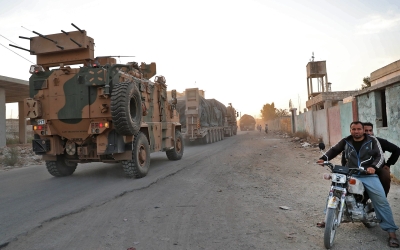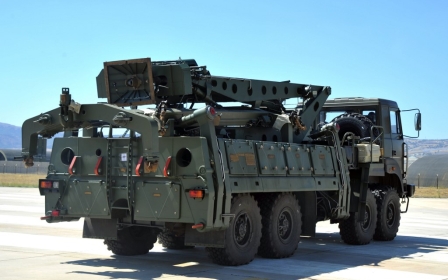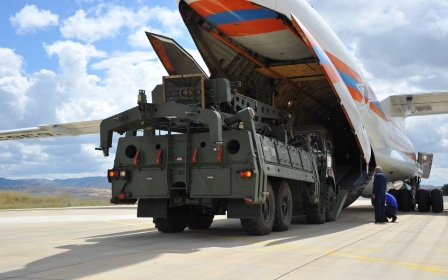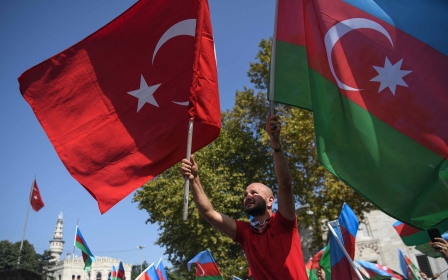How US sanctions will affect Turkey's defence industry
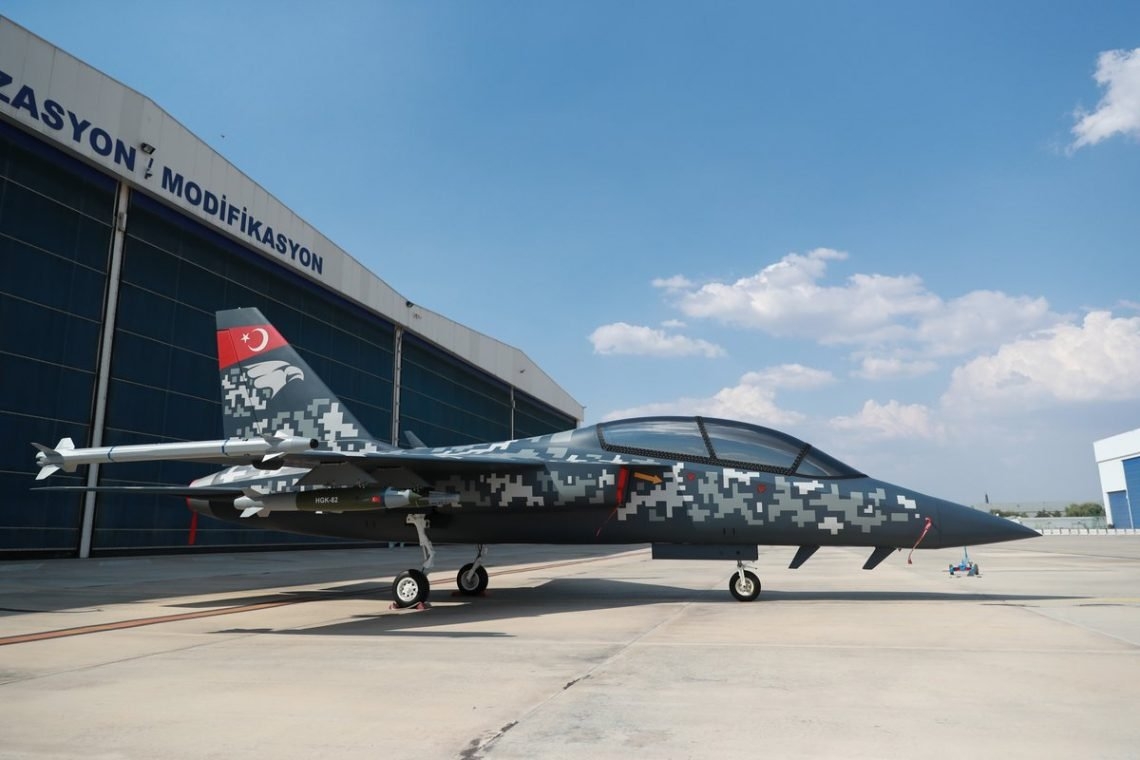
US sanctions imposed on Turkey on Monday over the S-400 missile systems bought from Moscow specifically targeted the Presidency for Defence Industries (SSB), the country’s military procurement agency.
While markets saluted the sanctions package, as it wasn’t as severe as expected, Turkish military analysts were concerned by the impact the penalties could have on the defence sector, which recorded total sales of more than $10bn last year.
The most crucial part of the sanctions was the export licencing ban placed on SSB.
SSB's president, Ismail Demir, who was also sanctioned by the US Treasury, said during a live broadcast on Monday night that his agency had been preparing themselves for this scenario for a while.
“There isn’t any US licence that would put us in a tough position,” he said. “The US hasn’t been providing the things we have been asking for a while. This is just officialised.”
New MEE newsletter: Jerusalem Dispatch
Sign up to get the latest insights and analysis on Israel-Palestine, alongside Turkey Unpacked and other MEE newsletters
Deliveries of the S-400 batteries, for which Turkey paid $2.5bn, were completed last year. Washington had long warned Ankara against the purchase, insisting that buying the technology presented a security risk for Nato.
For the past two years, Turkish and US officials had been looking for a way to resolve the S-400 crisis, but were unable to reach a deal.
The US-imposed sanctions will not affect already-issued export licences, such as spare parts for Turkish F-16s, but they could still have an impact on up to $2bn worth of annual contracts signed by SSB.
Washington's sanctions could create problems for significant multibillion-dollar projects, such as Istanbul-class frigates, Hurjet training and light combat aircraft and Turkey’s fifth-generation fighter jet TFX.
“The sanctions package is not a light one. The SSB is a catalyst for Turkey’s defence ventures and international collaboration that includes tech-transfer and co-production,” Can Kasapoglu, director of defence research at the Turkish think-tank EDAM, told Middle East Eye.
“The SSB runs hundreds of weapon systems projects and hundreds of lucrative defence contracts.”
Local solutions
Even though the Turkish government boasts about the fact that it is now able to locally supply 70 percent of its defence procurement needs, it still depends on foreign expertise and technology for sophisticated projects.
Kasapoglu said the SSB may find third parties were hesitant to work with it, now the agency had become a "sanctioned entity".
Others believed the sanctions would only have an impact on the SSB procurements for a year and that Ankara would be able to find remedies.
“Other local Turkish firms and individuals could take up the procurement task for the needed parts and systems," said Yusuf Akbaba, an Ankara-based defence analyst. "The defence ministry’s firms could do the job.”
To prevent a strong fallout, the SSB had already completed studies on the specific systems to see whether they could build them locally.
'Other local Turkish firms and individuals could take up the procurement task for the needed parts and systems'
- Yunus Akbaba, defence analyst
“In one component, they have realised that they could produce them in Turkey up to 80 percent local production,” Akbaba said.
One fundamental question is whether Turkey would replace US suppliers with Russian ones, which could lead to further and heavier sanctions.
Akbaba believes Turkey was not inclined to follow through with the purchase of a second batch of S-400s, due to regional disagreements with Moscow over Azerbaijan and Syria.
“Both the SSB and the defence ministry also don’t want to purchase fighter jets from Moscow,” he said.
However, Turkish President Recep Tayyip Erdogan has always been keen to co-produce the S-400 missile defence system, something Ankara's deal with Moscow only allows with a second batch.
Kasapoglu said Russia would happy to provide the S-400, considering the splits it would create within Nato.
“However, the dangerous part is: which Turkish companies will cooperate with Almaz-Antey [producer of the S-400s]? Roketsan for the interceptor? Aselsan for electronic warfare countermeasures?,” Kasapoglu said.
“So far, the fallout is limited with the SSB. Risking the crown jewels of Turkey's defence and industrial base with further CAATSA [Countering America's Adversaries Through Sanctions Act] sanctions would be a gamble where, in the end, the only winner would be the Russians.”
Middle East Eye delivers independent and unrivalled coverage and analysis of the Middle East, North Africa and beyond. To learn more about republishing this content and the associated fees, please fill out this form. More about MEE can be found here.


